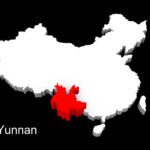This report discussed one of the most beautiful states in the country of Nigeria, Osun State. Located in the southwestern region, Osun State is a vibrant area rich in cultural heritage, historical significance, and natural beauty. Established in 1991, the state has since developed into a hub of agricultural productivity, educational excellence, and cultural tourism.
The report highlights Osun’s historical roots, emphasizing the significance of the River Osun and the sacred Osun-Osogbo Grove, a UNESCO World Heritage Site. These elements underscore the state’s deep-rooted traditions and spiritual importance, attracting visitors and devotees worldwide.
The economic section of the report illustrates Osun State’s reliance on agriculture, with significant contributions from small and medium-sized enterprises especially Aso-Oke (Woven clothes). The state’s role as a major cocoa producer is particularly notable, alongside the impact of tourism driven by its numerous cultural and natural attractions.
Demographically, Osun State is portrayed as a diverse and multi-religious region where Islam, Christianity, and traditional worship coexist peacefully. The state’s commitment to education is evident in its high literacy rates and numerous educational institutions, ranging from universities to specialized colleges.
The report also sheds light on the state’s healthcare sector, which aims to achieve universal health coverage through various initiatives and partnerships with local and international organizations. The robust infrastructure and commitment to improving health services reflect Osun’s dedication to the well-being of its residents.
The report provides a comprehensive overview of Osun State, celebrating its cultural richness, economic potential, and social harmony. It paints a vivid picture of a state that values its heritage while striving for progress and development, making it a vital part of Nigeria’s diverse landscape.




